In this article, we’re going to explore some of the things you can do to strengthen your immune system. Never in modern living memory has this been as important as it is now. And if you are your family’s only breadwinner then you should make every effort to keep your self fit and healthy.
As most of the planets poulation is on lockdown right now the amount of exercise we do to stay fit goes down (bad for the immune system) and when there’s nothing to do and you’re locked idoors, two things tend to happen:
- There’ll be a lot more babies born in a few months time (How else are you ment to spend the long night hours?!)
- We get fatter
So, unless you want to expand your family and your waistline, best you start expending all that excess energy in another way. In short workout at home, and watch what you eat, both will help to stregthen your immune system in the fight against the Covid 19 virus. Here’s our thoughts and some advice…

Does working out strengthen your Immune system?
In the world today the Covid-19 coronavirus is making people think a little harder about infections and illnesses. We’re practicing social distancing and following proper hygiene and cleanliness procedures to avoid getting ourselves or our loved ones sick. But is there anything else we can do to get the upper hand in this battle against infection? The answer is yes! If we add in a healthy amount of exercise to our daily routines we can see improved health benefits and help our bodies fight infection. We can’t always avoid people who are sick. The best thing we can do right now is it give our immune systems a little bit of a boost so that if we do come in contact with someone who is ill in the outside world, our bodies are going to be better prepared to fight. This will keep us healthier and help prevent the spread of this virus. Exercise has multiple health benefits and adding even a moderate amount into your day can give your immune system the edge in this war against illness.
Here’s some great advice about how to strengthen your immune system with exercise
Effects of Exercise on the Immune System
So what are the effects of exercise on the immune system? One of the ways that exercise might help battle infection is the fact that when you’re breathing hard from increased activity your lungs are going to be pushing through a greater quantity of air. This helps recycle air faster and it also pushes bacteria out of your lungs. In addition to bacteria being pushed out of your lungs, it also clears out your airways.
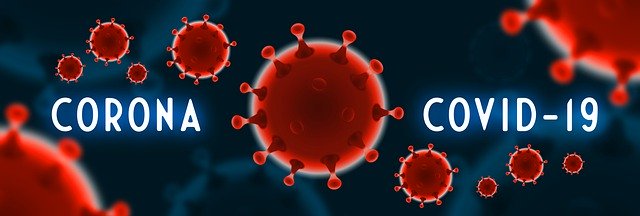

The way Covid-19 begins in people is by bacteria hanging around our lungs and airways where the air is cooler. This virus doesn’t thrive in warm areas. The fact that exercise is pushing warmer air through your lungs helps to eliminate bad bacteria and kill the virus before it can take hold. Your whole body temperature raises after you exercise and this forces an increased immune response throughout your body. Think of what it’s like to have a fever. This elevated body temperature is your body’s way of fighting infection and exercise can simulate this at a lower level temporarily. This slight increase in body temperature can really help your body fight off infection. This will also help prevent you from getting a variety of colds and the flu.
Exercise also changes your white blood cells and how they react to illnesses. Exercise can speed up the response of your white blood cells so that when an infection is present they arrive at the infection sooner before it has a chance to take hold. This allows your white blood cells to attack the illness when it’s still small as opposed to slower white blood cells which might allow the virus to grow too big for them to handle.
When you exercise you’re releasing endorphins into your body and sparking the “feel good” response in your brain. This helps get rid of anxiety, stress and depression. Elevated levels of stress can make you more susceptible to illnesses so keeping your stress low can help you prevent the likelihood of infection reaching you.


Short and Long term Effects of Exercise on the Immune System:
When you’ve just begun exercising you can see some immediate effects on the immune system. For starters, there is the increased body temperature that may contribute to fighting illness and there is also the bacteria that gets pushed from our lungs and airways with our increased respiration. On top of these benefits it’s been shown that if you’re taking any medication to prevent illnesses or vitamin supplements, even a single session of exercise can improve the effectiveness of these treatments. Any process that you’re using to help boost your immune system can be boosted further by an exercise session.
When you’ve been working out for a while you begin to see added benefits to your immune system. Regular exercise can help strengthen your cardiovascular system and your bones leading to greater overall health. Exercise helps lower your risk of heart attack, diabetes and cancer. This can help prevent you from getting COVID-19 and other illnesses because if your body is already fighting a battle against cancer or a heart condition your white blood cells will be too stressed out to pay attention to what it sees as less of a threat. This allows the infection to enter your body easier and makes you more susceptible to illness. When your body is in excellent health, to begin with, due to your regular exercise habits your white blood cells are going to be on the lookout for any invader and you’ll be able to fight off infections. Exercise can also reduce inflammation throughout the body. This anti-inflammatory process helps prevent infection.


Which Exercise is best for the Immune System:
Athletes and other people who put themselves through an extreme exercise routine actually undergo a process of reduced immune response where their body is too stressed out from their intense workout to fight off infection. This doesn’t last long; however, if you want your body to stay in peak infection fighting condition you should steer clear of intense workouts.
Instead, it’s recommended that you focus on medium to low-intensity workouts, especially if your body isn’t used to working out and exercise is a new thing for you. A 30-minute walk around the block is often enough to increase your immune response. Lifting weights is another great option for increasing your immune system. If you don’t have a bench press or free weights at home you can always use everyday objects such as large jugs filled with water. A nice bike ride in a park can be a fantastic way of getting out of the house while still practicing self-isolation. Biking is a great cardiovascular exercise that will boost your immune system. Hiking, like walking, is also a gentle exercise that will help your immune system.
No equipment at home to workout with? No problem, here’s what you do…
If you’re in self-isolation in order to avoid Covid-19 and you don’t want to leave the house there are still good exercise options for you. There are plenty of online videos that can be accessed using YouTube in order to get some guided exercise. You can choose your intensity and you can choose how long you want to exercise for. If you’re going to be doing a higher intensity exercise such as HIIT then I would recommend doing a shorter video so that you get the immune benefits without taxing your system to the point of lowering your immune response.
Make your immune system bullet proof
The Impact of Exercise and Nutrition on the Immune System:
Nutrition plays a huge roll in how well our immune system functions. When your body is malnourished and you aren’t getting the proper nutrition it can’t support your immune system and it begins to slow down. It’s similar to the fuel you put in your car. If you don’t put in the right fuel (Deisel in a gasoline tank) your car won’t run properly and may even break down completely. Adding Premium fuel to your car as opposed to regular will allow your car to function even better. In the same way, our nutrition levels contribute to how well our bodies function. Eat only junk food and your body will shut down. Whereas if you fill your body with premium fuel such as fruits, vegetables and lean protein you’re allowing your body to reach its highest level of support for your immune system.
How does nutrition affect the immune system:
Avoiding sugar can help your immune system because sugar slows down your immune response. Sugar prevents your body from attacking bacteria for several hours after you eat or drink it so the more you can eliminate sugar from your body the better your chances of avoiding infection. Instead, you should opt for fruits and vegetables that are high in essential nutrients such as vitamins, iron and potassium. A lot of people know that there’s a connection between Vitamin C and a healthy immune system. However, other vitamins such as Vitamin A, Vitamin E and Vitamin D all play a crucial role as well. Vitamin D can be absorbed by our skin from exposure to sunlight. When you’re self-isolating it can be hard to get enough sunlight to give you adequate levels of Vitamin D but you can supplement this with fortified milk, cheese and fatty fish. Vitamin C can obviously be found in citrus fruits but you can also find it in green vegetables such as broccoli and kale. Vitamin A is an antioxidant that helps your body ward off illness and it can be found in eggs, orange and yellow fruits and orange vegetables such as carrots. Vitamin E is an antioxidant that allows your body to fight viruses and infections. It is most commonly found in leafy green vegetables, nuts and seeds. Incorporating these vitamins into your diet can go a long way to strengthen your immune system response.

There are some other key nutrients that support and strengthen your immune system as well. Micronutrients such as folic acid, zinc, iron and selenium play a role in increased immunity from infection. Iron helps your cells receive the oxygen that they need to function properly. Every part of our body needs oxygen and our cells are no different. You can get iron from meat and fish and it can also be found in leafy green vegetables and beans. Sometimes our immune system gets overly fired up and this is where Selenium comes in. This micronutrient slows down our immune system just enough that it’s able to identify what is truly a threat and what measures we need to take against it. Selenium can be found in garlic, broccoli and some nuts. Similar to Selenium, Zinc also helps our immune system to slow down enough to recognize what’s truly threatening our immune system and it also seems to be helpful in reducing inflammation in the body. Natural sources of zinc are meats and fish along with other seafood such as oysters.
The best source of these nutrients is a natural one through food. However, if it’s impossible to find fresh fruit and vegetables in your area, or if they’ve been made more difficult to get due to self-isolation and low supplies at grocery stores then it’s a good idea to take a multivitamin to help your immune system out. Always buy a good quality multivitamin, ideally with essential minerals too.

How does nutrition affect infection:
Lack of proper nutrition is one of the leading causes of suppressed immune systems worldwide leading to infection and illness. People who are unable to get enough protein in their diets lose the ability for their cells to help with their immune system, It’s been shown that even the lack of one key nutrient can cause problems with your immune system, Not getting enough Vitamins A, C, E, and B along with the micronutrients zinc, copper, iron, folic acid and selenium all create a stressed out immune system that doesn’t function properly. This leads to illness and susceptibility to catching infections such as Covid-19. Of course, eating too much isn’t good either, especially if you’re not eating the right foods. Being overweight can cause problems with your immune system leading to a harder time avoiding infections. Of course, getting back to a healthy weight isn’t possible overnight, but by exercising and eating foods high in nutrients that fuel your system you can slowly get back down to a healthy weight and help yourself avoid viruses and colds in the future.
Immune System Superfoods to strengthen your immune system:

Blueberries: Any berry is going to be fantastic for your immune system but blueberries take things to a whole other level. There is a large amount of the antioxidant vitamin C in blueberries and they are great for reducing inflammation throughout the body. They’re easy to find either fresh or frozen and delicious to snack on either by themselves but they also taste great on top of some yogurt or in a smoothie.
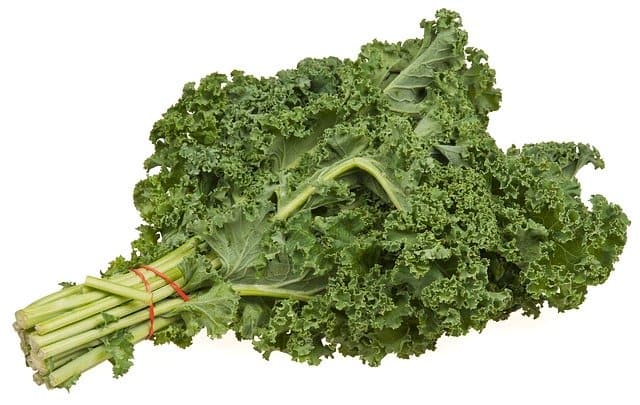
Kale: This leafy green vegetable has a reputation as a superfood for a reason. They’re loaded with vitamins and micronutrients and they’re a huge source of anti-oxidants. You can hide some kale in your smoothie or your salads or you can crisp them up in an oven with some salt and pepper for a crunchy nutritious snack.
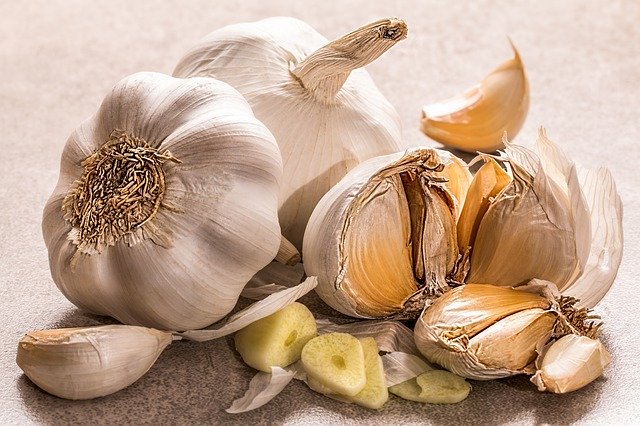
Garlic: Most dishes contain garlic and for good reason. This superfood is loaded with antioxidants and has proven to have numerous health benefits such as lowering your cholesterol levels, your blood pressure and helping fight off infections. Garlic has a compound in it called allicin that is made up of sulfur. This might be the key to garlic’s ability to help your immune system battle viruses and colds
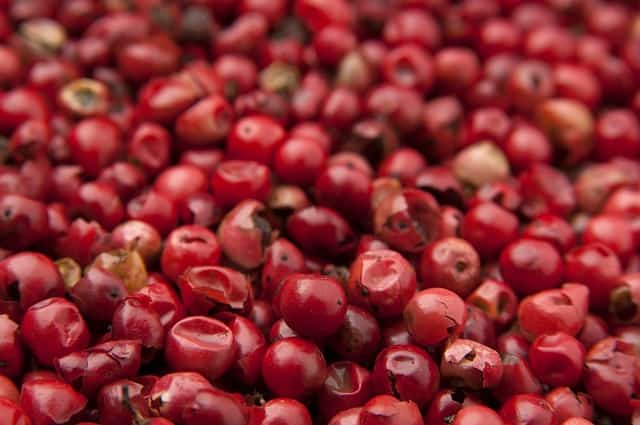
Gogi Berries: Another berry that finds its way into the superfood category is the Gogi berry. This little fruit is packed full of important immune-boosting vitamins such as vitamins C and B. It also has a lot of minerals, amino acids and essential fatty acids. This berry is great when dried and sprinkled on top of your yogurt or breakfast cereal.
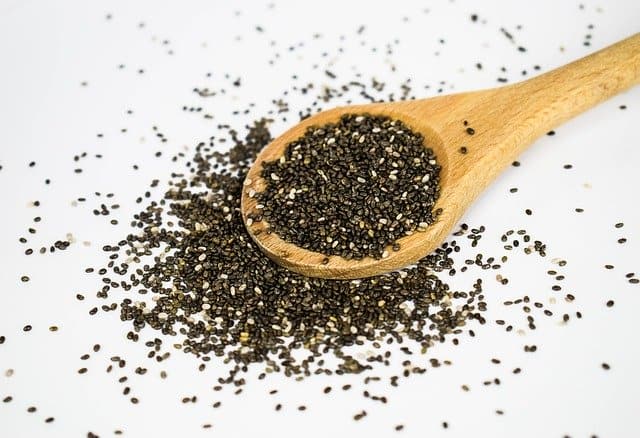
Chia Seeds: These little seeds are chock full of omega-3 fatty acids, more so even then fish such as salmon. They also have a lot of antioxidants and help with your digestive health. You can sprinkle them in everything from smoothies to salads
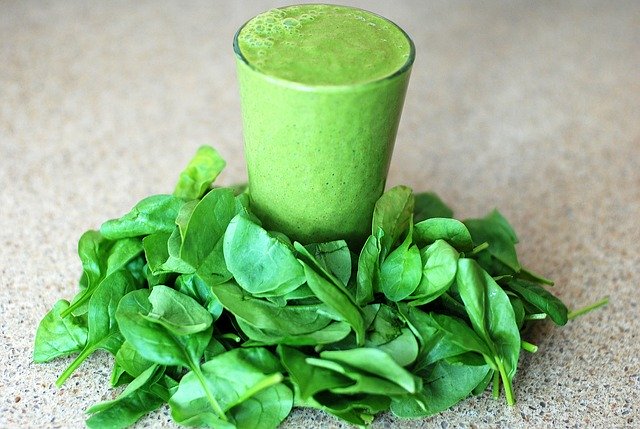
Spinach: This leafy vegetable is full of vitamins and antioxidants. The vitamin A in this food really comes out when it’s been lightly cooked, but you don’t want to overcook it otherwise the vitamin C has reduced efficiency. Spinach also has beta carotene in it, which is thought to help boost our immune system to fight infections.

Yogurt: Active yogurts such as greek yogurt stimulate our immune system so that it can respond faster to infections. Some yogurts have been fortified with vitamin D which helps boost our immune system. If possible go for a plain yogurt so you’re not holding your immune system back with added sugar. If you want you can always toss on some goji berries or blueberries for an added immunity boost and extra flavor.
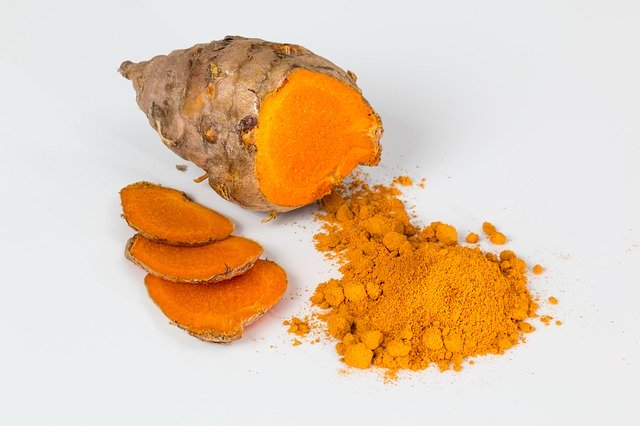
Turmeric: This spice is what gives curry its distinctive yellow color, but it’s also been found to help alleviate pain and reduce inflammation. It also has something called curcumin inside which also helps with inflammation and it can reduce muscle swelling and damage if you exercise too hard.

Green Tea: This tea is loaded with an antioxidant known as epigallocatechin gallate which is tied to a boost in immune function. It also has another antioxidant called flavonoids. The amino acid L-theanine is found in green tea. L-theanine has been shown to make germ-fighting compounds in your cells which aids in fighting viruses and infections.
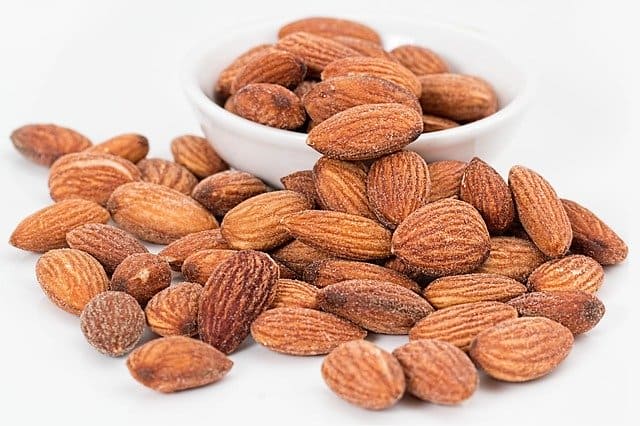
Almonds: All nuts contain essential minerals that help our bodies fight infection. Almonds are high in vitamin E which allows them to give our immune system a much-needed boost. They make a great snack and contain healthy fats that are necessary for our bodies to absorb vitamin E.
Learn the top home remedies to boost and strengthen your immune system – FREE Download

Now you know how to strengthen your immune system. It’s vital we take care of ourselves now more than ever with coronavirus wreaking havoc across the globe. No-one is immune and there is no cure or vaccine yet.
Do everything you can to take care of yourself and your family. Click on the banner above to download the immune system remedies ebook Strengthen your immune system, stay safe, stay home and lets beat this virus into submission.






































